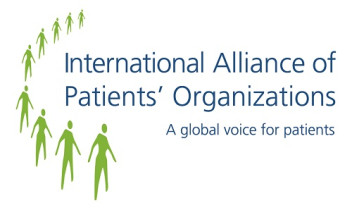
How the European Patient Ambassador Programme works for patient organisations
The advantage of the European Patient Ambassador Project for my organisation – Antonio Ciaglia, Policy Manager at IAPO
My organisation is involved in an EU funded research project. The project is called GetReal and explores innovative ways to include real-world evidence in the medicine development process. My role as a policy manager was to form a focus group with the aim to providing the patient perspective on methods of real-world data collection and analysis.
So, I contacted one of our partner organisations, the European Lung Foundation, to ask whether they had any patients experienced enough to join the focus group. They told me about their European Patient Ambassador Programme and they contacted all their ambassadors, who had completed their module on research and development. ELF believed that those patient ambassadors would be ideal participants for a project such as GetReal, as they would be well informed about their condition and also that they would have an understanding of how research works. Looking back at how the whole process went, I couldn’t agree more!
Just over 20 people came forward. I had not expected that many people, who would want to take part and so I split the focus group into three smaller ones to give everyone the chance to contribute.
We held two of the groups at our London office and one in Sheffield at the ELF offices, so that people living in different parts of the country could attend. We also had ambassadors attending from the Netherlands and Portugal and Italy. 2 people joined by Skype as well.
The patient ambassadors who took part in the focus groups were very quick to fully understand the nature and dynamics of the research process. Because of that, they fitted into the focus groups successfully and were able to put their views forward in a very effective way. What set the participants apart was their ability to adapt to the tasks and to identify which things were important and needed to be pointed out in the research project.
On the other hand the focus groups also represented an opportunity for the patient ambassadors to apply in practice key skills they had acquired or strengthened by completing EPAP. And it was good to see that it worked both ways.
Finally, I believe that completing the European Patient Ambassador Programme represents an excellent opportunity for patient advocates to develop a better understanding of the complexity of today’s healthcare system. In voicing their views, all of the focus groups participants exhibited a high degree of awareness of the external constraints that patient representatives can encounter in promoting and supporting their causes.
I found this aspect particularly important because becoming better informed about the potential obstacles is a first, fundamental step to successfully overcome them. It was a pleasure meeting and working with the patient ambassadors and I truly hope to collaborate with them again soon.